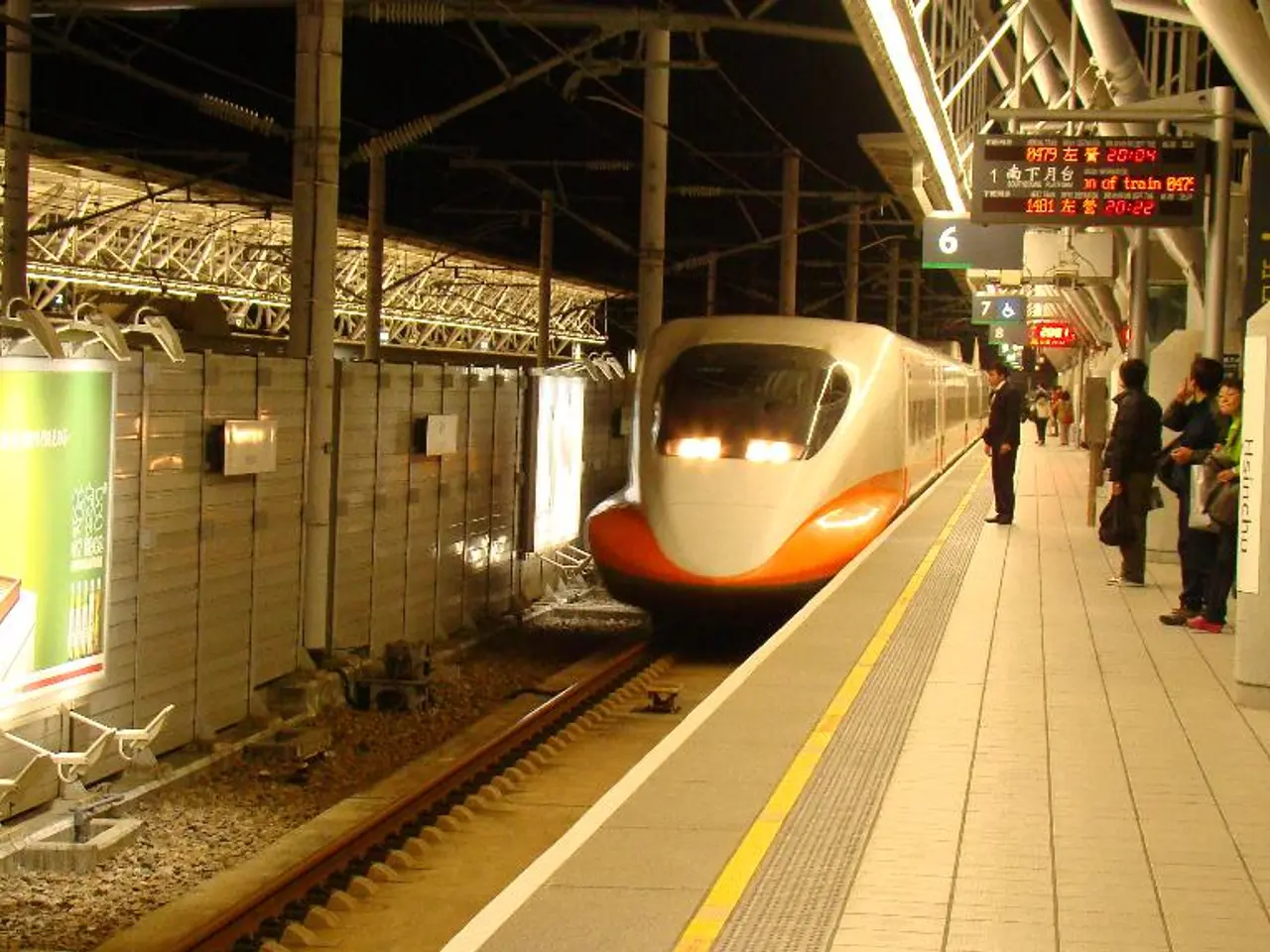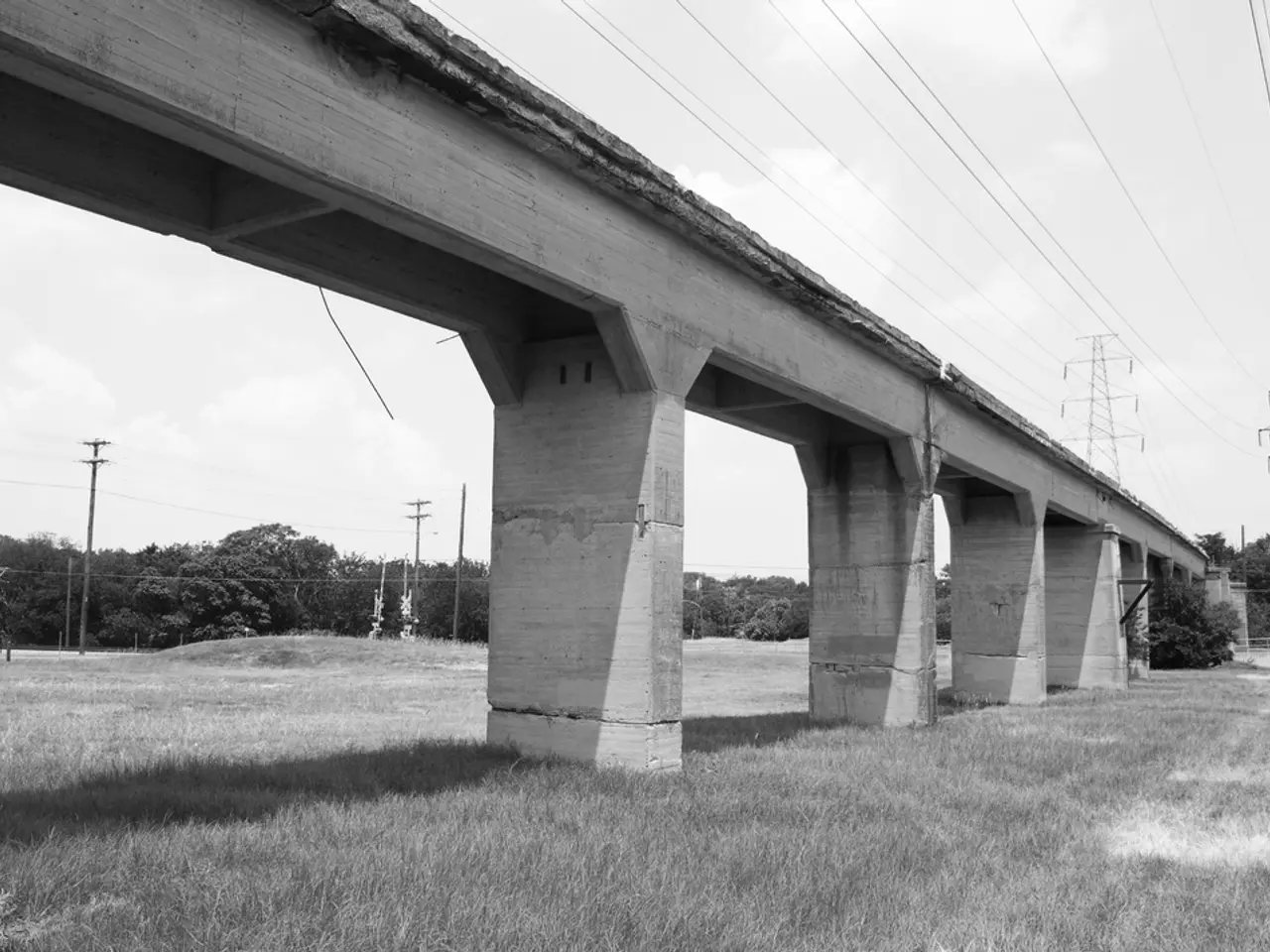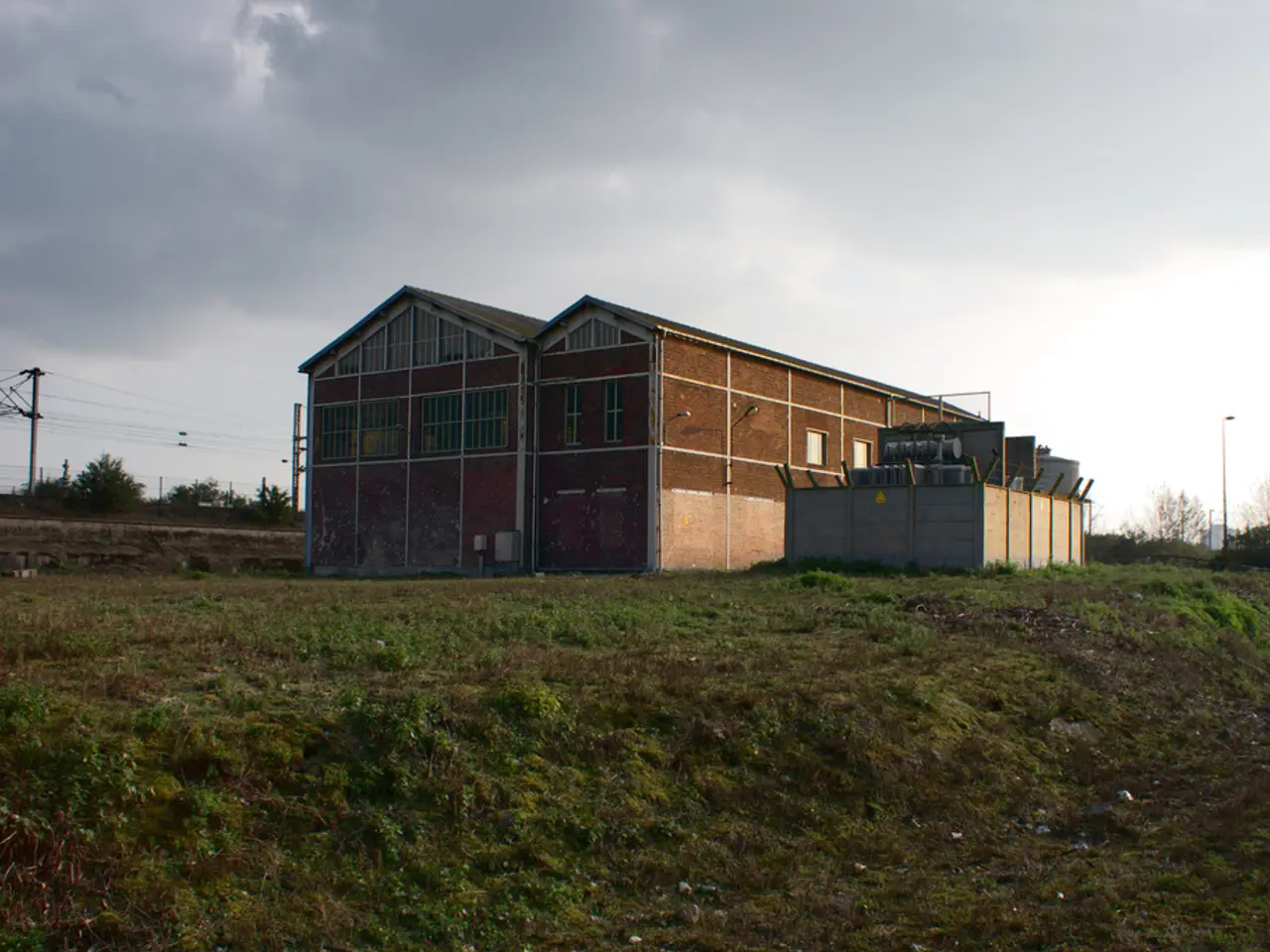Aurubis's earnings are being strained due to scheduled maintenance interruptions. - Aurubis's production rate is being negatively impacted during the planned maintenance period.
In the third quarter of the 2024/25 financial year, Aurubis, a leading global provider of non-ferrous metals and one of the world's largest copper recyclers, experienced a decline in operating profit. The company, which is listed in the MDax, reported an operating profit of €57 million, a significant drop from €90 million in the previous quarter [1][2].
The decline in profit can largely be attributed to a series of strategic maintenance downtimes at the company's sites in Hamburg, Germany, and Pirdop, Bulgaria. At the Hamburg site, investments and maintenance included projects such as the Complex Recycling Hamburg (CRH) and a new Precious Metals Refinery, aimed at reinforcing Aurubis’s recycling and refining capabilities. While these projects may temporarily reduce production throughput, they are strategic to increasing capacity and efficiency over time [1].
The Pirdop site in Bulgaria, however, was more significantly impacted. A planned shutdown of the primary smelter in Pirdop during Q3 2024/25 caused a reduction in the availability of concentrate, leading to a decline in supply on the European spot market. This maintenance shutdown was part of the largest modernization at the Bulgarian site in 30 years, with extensive measures aimed at increasing capacity and improving processes, including tankhouse expansions and slag treatment. The shutdown reduced concentrate processing capabilities temporarily but strengthens long-term performance and efficiency [1][3][4].
The reduced concentrate processing at Pirdop also affected recycling material availability in Europe due to the interlinked supply chain. As a result, the earnings of Aurubis' recycling division were impacted. Despite these challenges, Aurubis still expects to meet its profit target for the 2024/25 financial year [1].
The third quarter revenue for Aurubis was €4.6 billion, a decrease of 2% compared to the previous year. The company currently employs around 7,100 people. Net profit after nine months fell by about one-fifth to €215 million. The Aurubis plant in Bulgarian Pirdop produced less sulfuric acid, a byproduct of copper production used in fertilizers [1].
Business with sulfuric acid and higher prices for gold, among other factors, could not fully offset the impact on profits. Lower smelting fees for copper concentrate and startup costs at the US site in Richmond also contributed to the decline in profits in the third quarter [1][2].
After the third quarter (April-June), Aurubis narrowed its outlook. The previous operating profit target expectation for Aurubis was €300 million to €400 million. The revised operating profit expectation for Aurubis is now €330 million to €370 million [1].
Reference(s): [1] Aurubis AG. (2024). Aurubis reports Q3 2024/25 results. Retrieved from https://www.aurubis.com/en/investor-relations/financial-calendar/financial-results/ [2] Reuters. (2024). Aurubis lowers profit outlook on lower copper concentrate prices. Retrieved from https://www.reuters.com/business/copper-prices-lower-aurubis-lowers-profit-outlook-2024-07-27/ [3] Metal Bulletin. (2024). Aurubis to shut primary smelter in Bulgaria for 6 months. Retrieved from https://www.metalbulletin.com/articles/aurubis-to-shut-primary-smelter-in-bulgaria-for-6-months [4] European Copper Institute. (2024). Aurubis modernizes Bulgarian site. Retrieved from https://www.copperalliance.eu/en/news/aurubis-modernizes-bulgarian-site [5] Aurubis AG. (2024). Aurubis annual report 2023/24. Retrieved from https://www.aurubis.com/en/investor-relations/financial-calendar/annual-reports/
Industry leaders, such as Aurubis, are investing in research and development for enhancing their recycling and refining capabilities, as seen in the Complex Recycling Hamburg (CRH) and the new Precious Metals Refinery projects at the Hamburg site in the third quarter of the 2024/25 financial year. Simultaneously, these companies are seeking collaboration and aid for research and development in the industry, relying on finance to fuel their energy-intensive operations.




